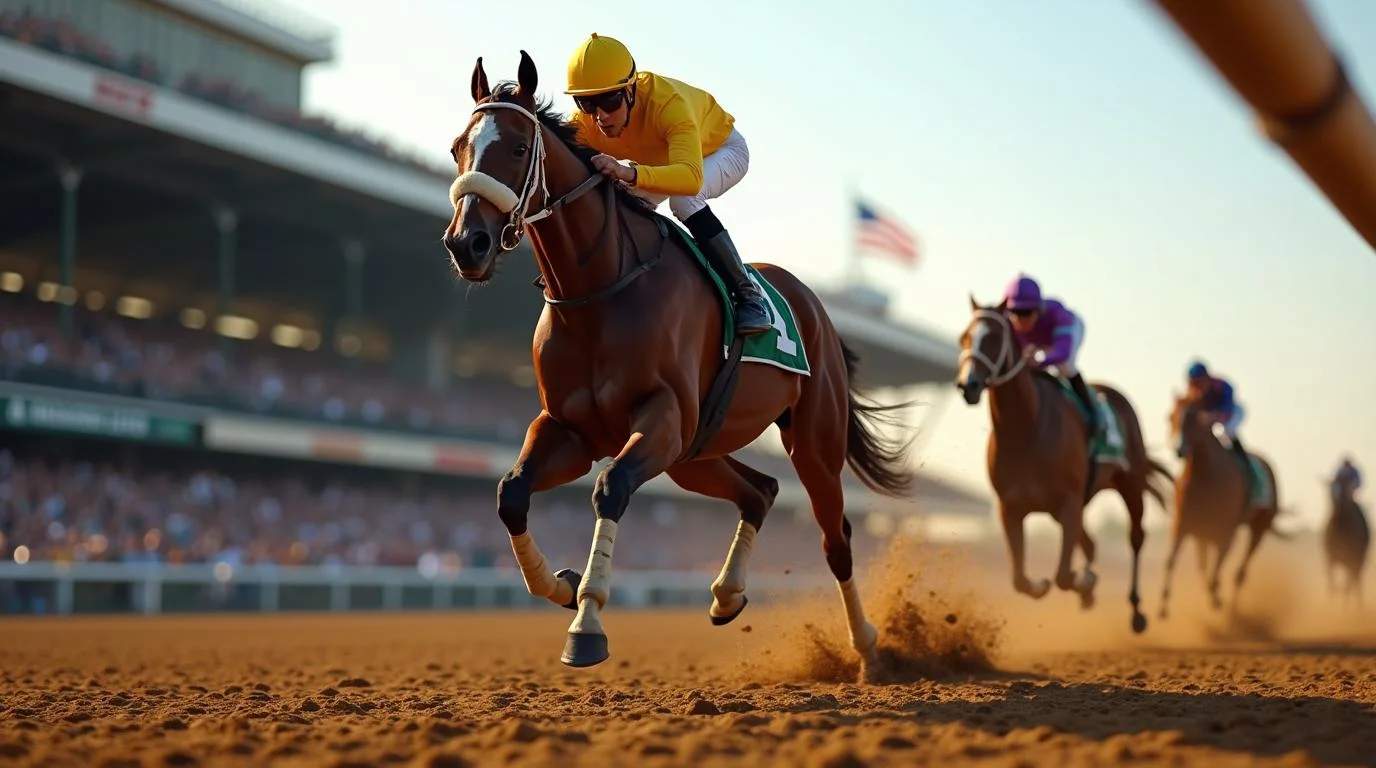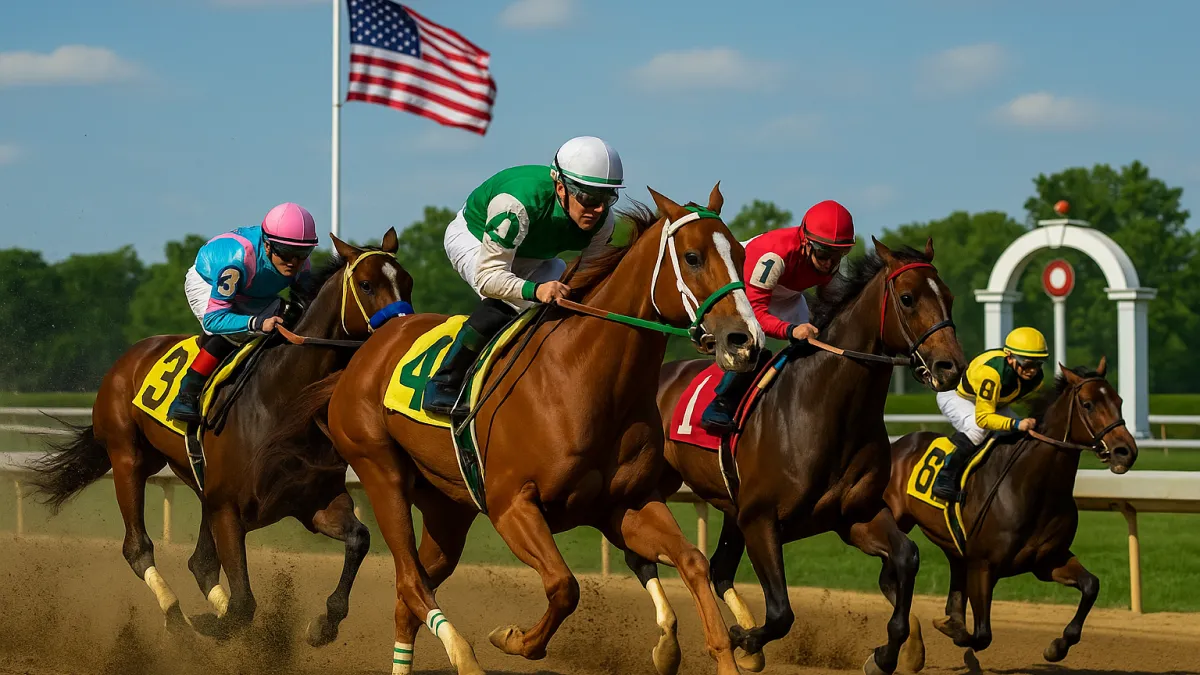Oregon Set to Ban Simulcast Greyhound Racing as Lawmakers Advance HB 3020

1.0
Default
Simulcast greyhound racing has been on the decline for a number of years in the United States - and now, the state of Oregon is seeking to ban it as well. Even though greyhound racing is still popular in Oregon compared to other states in the US, a proposed House Bill, HB 3020, aims to make all forms of dog betting illegal in the state.
Despite its waning popularity across the United States, greyhound race betting continues to hold surprising sway in Oregon - a state that hasn't hosted a live dog race in over two decades. But that may soon change.
The ideal time for a change
Oregon lawmakers are advancing legislation to fully outlaw betting on greyhound races, joining a growing national movement against the controversial sport. House Bill 3020, which has already passed the state House, moved through the Senate Labor and Business Committee with unanimous support on April 17. If enacted, the bill would prohibit all forms of dog race betting in the state, including simulcast wagers placed on races held elsewhere.
"The governor asked me to do anything I can to stop taking greyhound wagers," said Connie Winn, the Oregon Racing Commission director, during a recent committee hearing. "And that's why we have this bill."
Although live greyhound racing has all but vanished from the American sports landscape - illegal in 44 US states and active in only one, West Virginia - betting on the sport remains legal in 16 states through simulcast systems. These allow gamblers to wager on races taking place in other jurisdictions, often abroad in countries like England, Australia, and Ireland.
But that number is shrinking. Arkansas, New Hampshire, and Arizona are set to implement simulcast betting bans in the coming years, and now Oregon may be next.
A central player in a fading industry
Even without live racing, Oregon remains a crucial hub for the greyhound betting industry. Along with North Dakota, it hosts one of the country's two main Advance Deposit Wagering systems - platforms that facilitate remote betting on horse and dog races. In 2023 alone, GREY2K USA, a leading anti-greyhound racing advocacy, estimated that $144 million was wagered on greyhound racing through these hubs.
Eight ADW companies currently operate in Oregon, two of which - Twin Spires and AmWest - handle simulcast dog race betting. According to the ORC, such wagers accounted for 4.6% of AmWest's and 1.78% of Twin Spires' total 2023 betting activity.
Among Oregonian bettors, dog racing maintains a niche appeal. In 2023, 17.9% of wagers posted online and 22.4% of off-track betting wagers in the state were placed on greyhound races. Winn noted that at some OTB facilities, greyhound wagers make up nearly 40% of total activity.
"People in Oregon love to wager on greyhounds. They absolutely love it," said Winn. "Out of every state in the United States, we're number three for the amount of people that wager on greyhound racing. I don't know why. It just is."
Balancing morality and money
Supporters of the bill argue that animal welfare concerns outweigh financial considerations. Executive director of GREY2K USA, Carey Theil, testified that greyhound racing is 'cruel and inhumane,' citing a recent ORC report documenting over 10,000 injuries at racetracks used by Oregon bettors. Theil dismissed concerns over financial losses, calling greyhound betting "a dying industry." He noted a 15.5% year-over-year decline in greyhound wagering at Oregon's OTB parlors from 2023 to 2024.
However, the legislation does come with a cost. The ORC estimates a loss of $200,000 in licensing fees and potentially $2.3 million in ADW revenue every two years if affected betting systems leave the state. That would reduce general fund revenue by approximately $450,000 per biennium.
Still, lawmakers are committed to mitigating the impact. Two companion bills aim to fill the financial gap, and Representative David Gomberg pledged during testimony, "We are going to make sure [the ORC is] held whole and harmless during this transaction." The bill's effective date is set for January 1, 2027, giving the state time to manage the economic adjustment.
Industry pushback
Not everyone agrees with the legislation. Board director of the National Greyhound Association Leslie Csokasy challenged the cruelty claims in written testimony, arguing that greyhound racing has a 99.5% incident-free rate. She warned that eliminating simulcast betting would hurt small businesses that depend on the revenue. "Finding alternative sources of income is not a simple or immediate solution," Csokasy wrote.
Still, momentum is building. For many lawmakers and advocates, the issue is clear: phasing out greyhound betting is a step toward aligning Oregon's policies with evolving public values on animal welfare. "This is a good bill to help dogs," said Theil.




















